'The cross-pollination between the states has always been happening.'
'It's only over the past one or two years that all this talk about South versus Bollywood has been happening.'
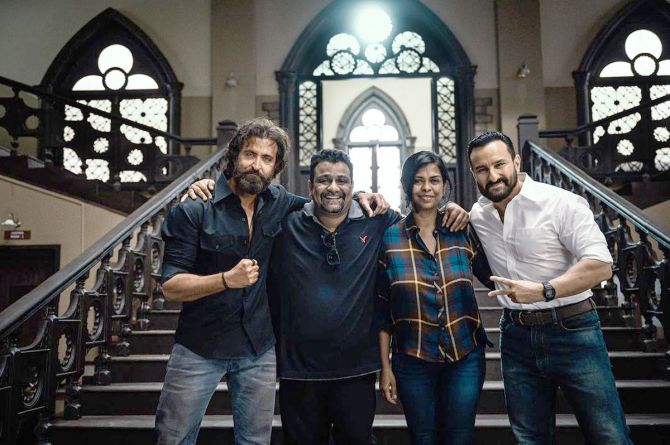
Five years after winning awards and accolades for their Tamil blockbuster Vikram Vedha, the husband-wife director duo of Pushkar and Gayatri have released the Hindi version of the film, featuring Hrithik Roshan and Saif Ali Khan.
The film is getting great reviews, and the directors tell Rediff.com Contributor Mohnish Singh, "Our initial thought was that if we were going to do it, we needed to approach it from a specific angle because when someone like Hrithik Roshan interprets Vedha or Saif Ali Khan interprets Vikram, something magical happens."
There is Ravana's picture on the poster, and we also have the ancient story of Vikram Vedha. What was the thought behind putting these two ancient stories in the film?
PushkarL This is just a brief history of how this began.
It was one of those completely useless conversations that you have at like 1 or 2 am when you are not able to sleep.
So Gayatri and I were talking about how there are all these films about right and wrong but nothing about the space in between.
We were attempting to begin with the concept of a person, who sees in black and white versus a person who sees in grey.
In that conversation, which is the thing that will end up in like a philosophical note, that idea of Vikram Betal popped up and she said, 'Hey, you remember those stories that we read as kids that had that idea of that moral ambiguity being there?'
So that was the trigger and we started from there.
The presence of Vikram Betal was not imposed on the script. That is literally where everything began. Then you build on that.
Many, many drafts later, we started discovering who Vikram was and who Vedha was and all that.
I am sure there are people who write much faster and much better.
Gayatri: And after that, it actually went through various versions. We set it in the world of politics or business or all those kinds of things.
We wanted harder emotions. As a result, the cop in the gangster world lent itself to.
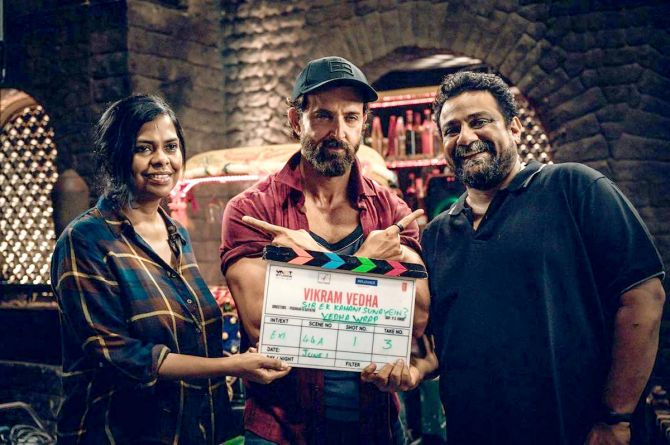
Vikram Vedha was a successful film in Tamil. What were the pressure points for you to make it into Hindi, to go with the casting?
Pushkar: I think it was pretty much the same pressure as making any film.
We have Hrithik Roshan on board but you still have to finish that scene on that particular day.
You don't say, 'Okay, I will get into the next take.'
So, in that sense, all filmm-akers, all directors face the same battles.
Actually, a lot of people said, 'Why are you working so hard for this? You have already done it once. You just have to shoot it again.'
One thing about Vikram Vedha is that, based on the trailer, many of you would classify it as an action film.
But what was actually more difficult for us was the story-telling aspect of it because there were these scenes between Vikram and Vedha, not the action bits, but the narrative scenes, which were complex from an emotional point.
So the beat keeps changing.
Every minute you have a new beat that has to be played.
Those were the complicated things to shoot, and that is what we spent a lot of time on.
Gayatri: The whole idea was to reinterpret the text with a new set of actors. That journey has been beautiful.
We were figuring out how to play it and interpret it in different ways.
How was this process for you to work on the film again for a different set of audience from the Hindi belt?
Gayatri: I mean, just like black and white, or grey, we don't ascribe to tags like South Indian or Bollywood. We keep it as open as possible.
Pushkar: A lot of people we know work extensively over here, like our director of photography (PS) Vinod. He has shot a bunch of films, done so many ads.
We have so many Hindi-speaking actresses working in southern cinema.
So the cross-pollination between the states has always been happening.
It's only over the past one or two years that all this talk about South versus Bollywood has been happening.
We know what's been happening here. People here knew what's happening in Chennai. So it is not like a culture shock.
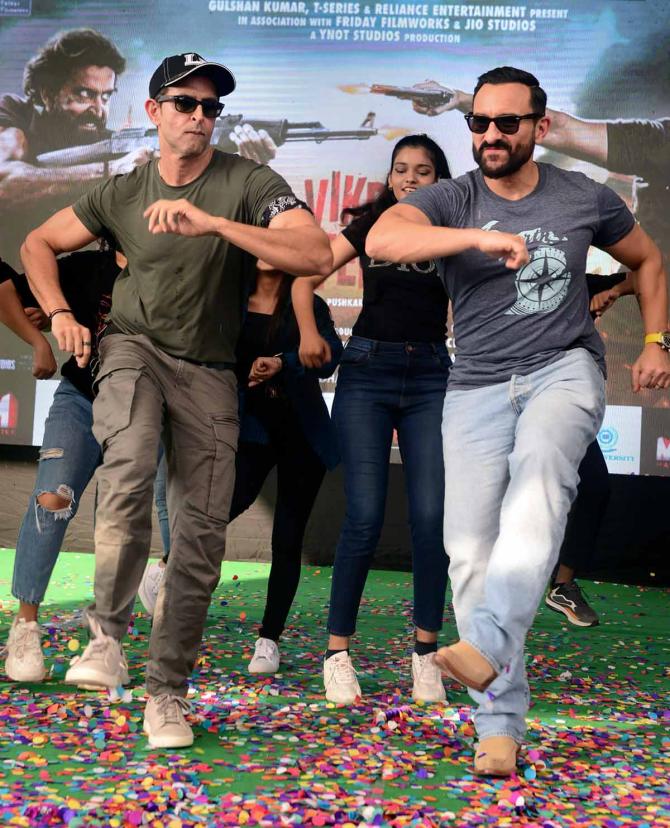
We are living in a time when social media has become the deciding factor for any film. There is so much written and said about actors, directors, and writers.
How do you view this current scenario? Are you concerned about the fact that social media has infiltrated our lives so much that it takes the film away?
Pushkar: You know, 15-20 years ago, films were judged by six or seven people.
The film critics would have a column in one of the major newspapers.
Since social media came in, it's been a democratisation of reviews.
Now everybody who has access to an account and access to a phone puts their thoughts down on social media.
You can look at it and say no, critics need to be there with a certain level of education in that art form, which is what is expected for somebody who is reviewing, say, a painting at MOMA or a music piece at Julliard. But cinema is something which has to connect with whoever is seeing it.
So whoever is seeing it has a right to put their opinion out there.
You just think of it as people contributing to the conversation about cinema.
And we have seen that through our careers.
Here, at least we are listening to what people are thinking rather just a very small subset of people, who get to write in a newspaper.
Gayatri: Social media is huge.
If a film is good and people like it, they will talk about it, and it will pick up.
Just the click of a button or word of mouth brings a huge advantage to the film.
What percent of Vikram Vedha has been copied from the original?
Pushkar: The script is exactly the same.
It was written with a certain idea in mind. So, in that way, we have not fundamentally changed the script for the sake of changing the script.
We have not changed this scene here and that scene there.
Our initial thought was that if we were going to do it, we needed to approach it from a specific angle because when someone like Hrithik Roshan interprets Vedha or Saif Ali Khan interprets Vikram, something magical happens.
That is the magic we are looking for. Everything else is just a cosmetic change.
We wanted to get a new insight into the actor's brain and how that air changes the stage.
If we can capture that, that is this film.
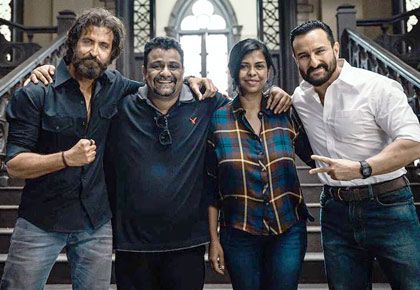





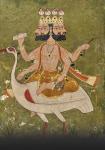


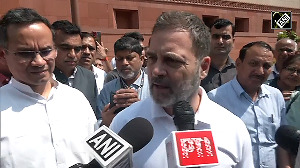
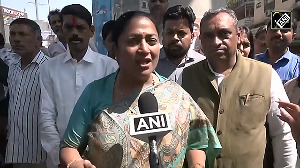

 © 2025
© 2025